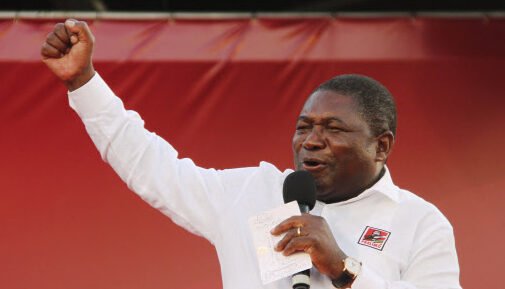Mozambique: "Despite the increased security risk, LNG financiers and project developers are likely to remain committed to developments," says Hobey-Hamsher, senior Africa analyst at Maplecroft Risk.

Plans by an international consortium led by French oil major Total to develop liquefied natural gas (LNG) in Mozambique will have to contend with an accelerating insurgency by Islamic militants.
The insurgency in Cabo Delgado, the country’s most northern province, has displaced more than 200,000 people since 2017. This year, insurgent attacks by the Ahlu Sunnah Wa-Jamo (ASWJ) militant group, previously limited to small villages, have started to target district capitals.
Total signed a $14.9bn senior debt financing agreement for Mozambique LNG on 17 July.
The project involves plans to construct the country’s first onshore LNG plant, including the development of the Golfinho and Atum gas fields in Offshore Area 1 in Cabo Delgado.
Eight employees at a construction contractor used by Total were killed when Islamist militants ambushed a vehicle near the border with Tanzania on 27 June.
The combat “appears to be entering a new phase” in which ASWJ can “no longer be treated as a ragtag group of autonomous cells, each with their own independent leaders and operations,” says Ed Hobey-Hamsher, senior Africa analyst at Verisk Maplecroft in London.
ASWJ has “demonstrated that it can coordinate simultaneous attacks in multiple locations,” says Hobey-Hamsher. That reflects “significant development in its control and command structure.”
Arms Access
Hobey-Hamsher says that despite the increased security risk, LNG financiers and project developers are likely to remain committed to developments in areas 1 and 4.
- Mozambique’s strategic location for European, Asian and South African markets, the deposit of gas in a single location, and joint development of areas 1 and 4, all contribute to a low breakeven point, he says.
- Hobey-Hamsher points out that ASWJ attacks against the LNG sector have targeted the isolated vehicles of subcontractors, not well-protected project sites.
- “This suggests that the ASWJ is not yet capable of attacking sites with heavily guarded perimeters. Breaching these sites would require heavier and more modern weaponry than the ASWJ is yet to demonstrate that it can access.”
- It’s likely that the insurgents do not have regular access to even small amounts of explosives, he adds.
Still, Hobey-Hamsher notes that illicit arms trafficking is widespread in East Africa.
- “The complicity of state officials in criminal activities in Mozambique increases the likelihood that the ASWJ will eventually secure the weapons necessary for attacks on onshore LNG sites,” he says.
The group’s gains have been encouraged by the failures of Mozambique’s state forces, he argues.
- Low pay, poor morale and misconduct in the senior ranks reduce the effectiveness of state security forces.
- The ASWJ has seized weapons and uniforms discarded by government forces abandoned in the face of advancing militants.
- ASWJ infiltration will curb the efficiency and damage the trust that local communities place in the security forces.
- That, in turn, will undermine willingness to share information about the movement of the militants, he says.
‘Opium’
Mozambique’s weak institutions do not augur well for the use of LNG receipts. According to the CMI research institute in Norway, the average annual cost of corruption in Mozambique from 2004 to 2014 is up to US$4.9b, about 60% of the country’s 2015 budget.
There’s little obvious sign that progress is being made: the country ranked 146 out of 180 countries in Transparency International’s 2019 Corruption Perceptions Index. Its transparency score of 26 out of 100 in 2019 has drifted down from 31 in 2012.
There is a risk of Mozambique’s leadership using LNG as a kind of “opium”, says Keun Wook Paik, an associate fellow at Chatham House in London. He sees a high probability of LNG becoming a “resource curse” for Mozambique. “Talk is one thing, actions another,” he says.
The insurgency is “a very dangerous product of LNG opium,” says Paik. He argues that the insurgents “are trying to carve out their own benefit” from Mozambique’s LNG development. The “boundary of their compensation” is at stake.
Bottom Line
Total and partners may find that the costs for developing LNG in Mozambique keep rising at gunpoint.

